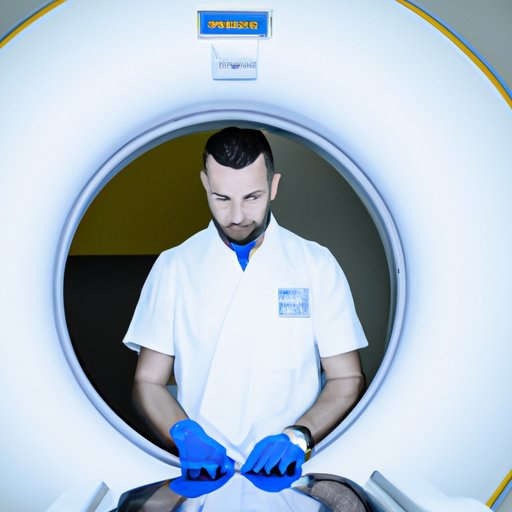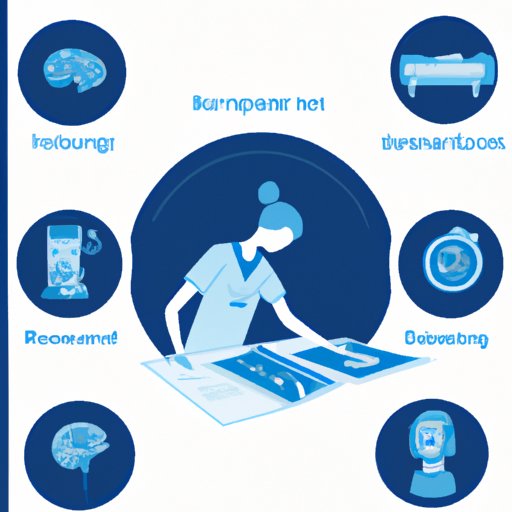Introduction
Magnetic resonance imaging (MRI) is a type of diagnostic imaging that produces detailed images of the inside of the body. MRI technicians are healthcare professionals who specialize in MRI scanning and interpretation. They are important members of medical teams and can work in a variety of settings, from hospitals and clinics to private practices.
Educational Requirements
The educational requirements to become an MRI technician vary by state. Most states require applicants to have at least an associate degree in radiologic technology or a related field. Some employers may also require applicants to have certification in MRI technology. In addition to formal education, most employers prefer applicants to have some hands-on experience in MRI.
There are a number of degree programs available for those interested in becoming an MRI technician. Many community colleges and universities offer associate degrees in radiologic technology, which provide students with the knowledge and skills needed to work in this field. For those interested in furthering their education, there are also bachelor’s and master’s degree programs in medical imaging.
In addition to formal education, many employers require applicants to have specialized training and certification in MRI technology. There are several organizations that offer certification in MRI technology, such as the American Registry of Radiologic Technologists (ARRT) and the American College of Radiology (ACR). Certification is typically obtained after passing an exam and completing a certain amount of supervised clinical experience.

Job Duties of an MRI Technician
An MRI technician’s primary responsibility is to operate MRI equipment and ensure that it is functioning properly. They must be familiar with the various types of MRI machines and know how to troubleshoot any issues that arise. They are also responsible for setting up the equipment and positioning patients for scans.
In addition to operating the equipment, MRI technicians must be able to interpret the results of the scans. They must be able to identify abnormalities, anomalies, and other conditions that can be seen on the scans. They must also be able to explain these results to patients and other healthcare professionals.
Finally, MRI technicians must also be comfortable working with patients. They must be able to put patients at ease and explain the procedure in a way that is easy to understand. They must also be aware of any patient safety concerns and take appropriate measures to ensure the safety of all patients.
Computer Technology in MRI Technology
As MRI technology continues to advance, so does the use of computer technology. MRI technicians must be familiar with the basics of computer technology and be able to use software programs to assist in the operation of the machine. They must also be able to troubleshoot any technical issues that arise with the machine.
In addition, MRI technicians must understand how to use computers to store, manipulate, and analyze data. They must also be knowledgeable about the digital imaging process and be able to transfer images from one system to another.
Safety Procedures and Practices
MRI technicians must be familiar with safety procedures and practices. They must be aware of any potential hazards associated with MRI equipment and take appropriate measures to minimize any risks. They must also be knowledgeable about radiation safety protocols and comply with all regulations.
Clinical Experience
Most employers require applicants to have some hands-on experience in MRI. This can include clinical rotations in MRI departments or working as a volunteer in a hospital or clinic. Clinical experience provides applicants with the opportunity to gain practical skills in the field and develop relationships with healthcare professionals.
Networking
Networking is an important part of becoming an MRI technician. Joining professional organizations and attending conferences and events can help applicants learn more about the industry and make valuable contacts. These contacts can then be used to find employment opportunities and further one’s career.
Conclusion
Becoming an MRI technician requires a commitment to education and training. Applicants must complete a degree program in radiologic technology or a related field and obtain specialized training and certification in MRI technology. They must also be familiar with computer technology and safety procedures, and gain hands-on experience in MRI through clinical rotations or volunteer work. Finally, networking is essential for finding employment opportunities and advancing one’s career. With the right education and training, becoming an MRI technician can be a rewarding and fulfilling career.
(Note: Is this article not meeting your expectations? Do you have knowledge or insights to share? Unlock new opportunities and expand your reach by joining our authors team. Click Registration to join us and share your expertise with our readers.)
